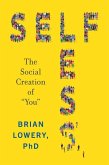The motivation for this volume is simple. For a variety of reasons, clinical psychologists have long shown considerable interest in the philosophy of science. When logical positivism gained currency in the 1930s, psychologists were among the most avid readers of what these philosophers had to say about science. Part of the critique of Skinner's radical behaviorism and thus behavior therapy was that it relied on, and thus was logically dependent on, the truth of logical positivism-a claim decisively refuted both historically and logically by L.D. Smith (1986) in his important Behaviorism and Logical Positivism: A Reassessment of the Alliance.
From the reviews:
"William O'Donohue, accordingly, deserves our praise in making a serious effort to cross disciplines-but especially disciplines as messy as psychology and philosophy...For O'Donohue, there are insights to be gained from each of the writers that he considers, as well as from postmodernism, and there is currently no consensus among philosophers on what might replace logical positivism. He concludes, accordingly, that one must be open to a "pluralism of perspectives" (p. 3). This conclusion is safe if it means that we need to assess the criticisms of the prevailing approaches and seek to frame them into a coherent philosophy of science. Given that psychology is a mansion with many rooms, O'Donohue avers that it may not be possible to construct a coherent philosophy of science that illuminates psychology. But some, at least, of the insights-even of postmodernism, fundamentally a philosophy of antiscience-are present in writers in very strong philosophy of science traditions."
Peter T. Manus
October 9, 2013, Vol. 58, Release 41, Article 5
PsycCRITIQUES
"William O'Donohue, accordingly, deserves our praise in making a serious effort to cross disciplines-but especially disciplines as messy as psychology and philosophy...For O'Donohue, there are insights to be gained from each of the writers that he considers, as well as from postmodernism, and there is currently no consensus among philosophers on what might replace logical positivism. He concludes, accordingly, that one must be open to a "pluralism of perspectives" (p. 3). This conclusion is safe if it means that we need to assess the criticisms of the prevailing approaches and seek to frame them into a coherent philosophy of science. Given that psychology is a mansion with many rooms, O'Donohue avers that it may not be possible to construct a coherent philosophy of science that illuminates psychology. But some, at least, of the insights-even of postmodernism, fundamentally a philosophy of antiscience-are present in writers in very strong philosophy of science traditions."
Peter T. Manus
October 9, 2013, Vol. 58, Release 41, Article 5
PsycCRITIQUES








